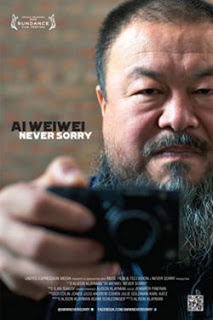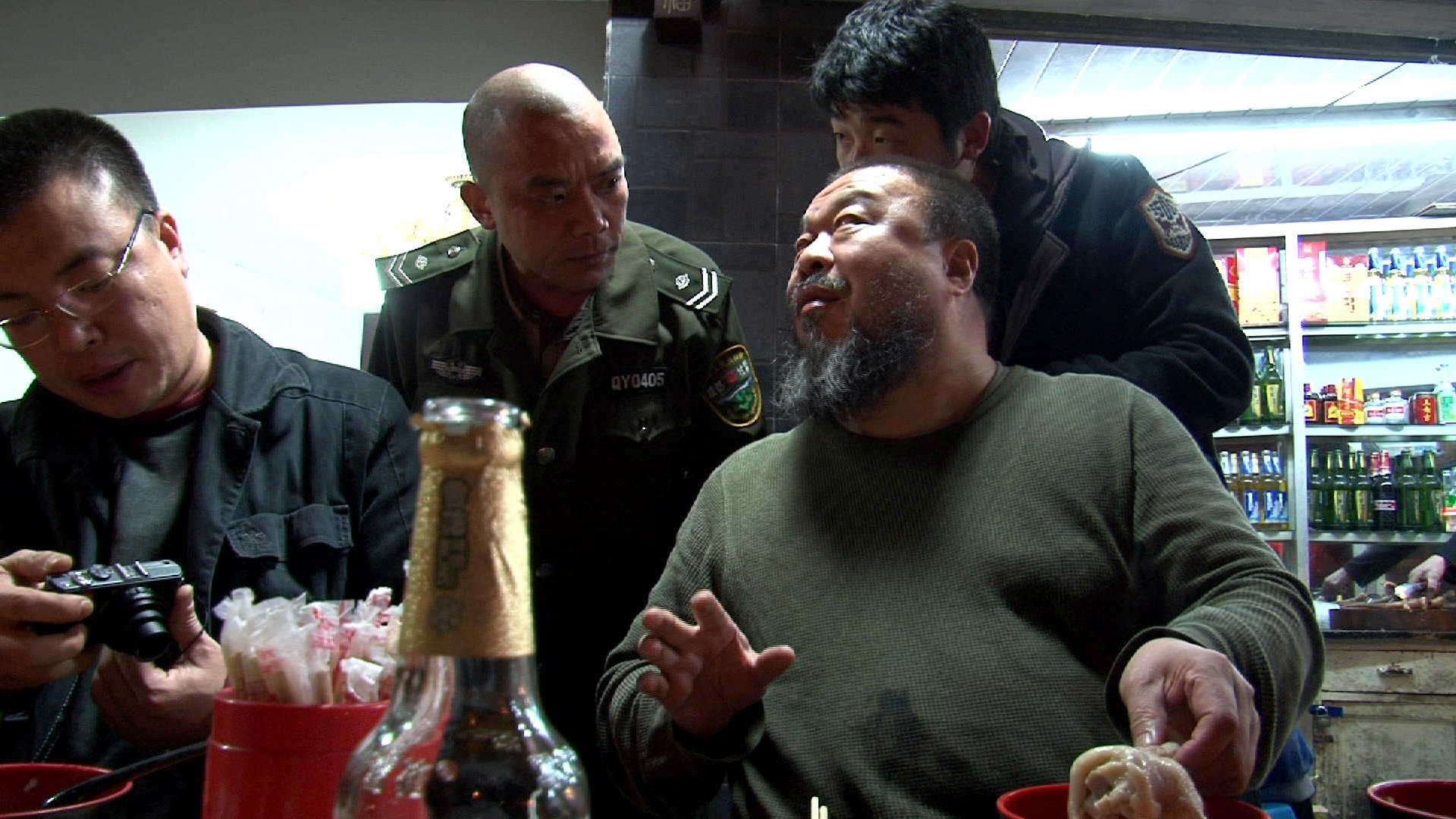
Ai Weiwei is a Chinese artist and activist who’s life has taken him from China to New York City and back to China where success finally took hold after he became one of the consultants involved in the design of the main stadium for the 2008 Olympics.
From that moment forward Ai Weiwei has been in a seemingly endless tug of war with the often-oppressive government of China over their insatiable desire to squelch all negative news and voices. Ai Weiwei: Never Sorry is a documentary that delves into several key aspects of his life with a focus on his specific trials and travails.
This film is the first effort of a new writer/director by the name of Alison Klayman who happens to be a native of the suburbs of Philadelphia and a past schoolmate of a close family member. We all looked forward to seeing this as soon as we became aware of it.
I went into the film unsure of what to expect. I personally had never heard of Ai Weiwei and was entirely unfamiliar with his work or his story. This was a chance for a documentary to truly inform and that, for me, represents the best hope for any documentary film maker.
As such the effort does a fine job of presenting the man and his challenges. It’s presented in a standard fashion with a touch of comedic undertones and a well-suited oft-muted look. We start off in current day China meeting Ai Weiwei at his studio and home. We then flash back to get a sense of his upbringing and influences before finally arriving at the apex of the story—his troubled relationship with the government of China.
As a first effort Miss Klayman should be quite proud. However, the effort isn’t flawless. The film seems unsure how best to present the story. At times we hear someone off-screen (Klayman?) asking distant off-handed questions. At other times we get Ai Weiwei telling us his story directly. Then we’re also sometimes treated as flies on the wall while seemingly unrelated journalists conduct their own interviews.
I also had a nagging sense of a lack of control on the part of the filmmaker. Some questions go unanswered while others are handled with only the most distant possible inquiry. I couldn’t shake the feeling that Ai Weiwei knew exactly how to play this effort to his best use by leveraging the power of access on a first-time filmmaker and that leads to a bit of skepticism that might not otherwise be present.
The story itself feels a bit long especially for a 91-minute effort but manages to pick up steam for a strong ending.
When considering a documentary I ask myself if I learned anything interesting and, if so, in a manner that made it compelling. In this regard Klayman has a success. I knew nothing of the man or his plight and now feel compelled to keep a closer eye on both his future exploits and the possible heavy-handedness of the Chinese government. The effort compelled me to dig deeper and that’s the bottom line.


